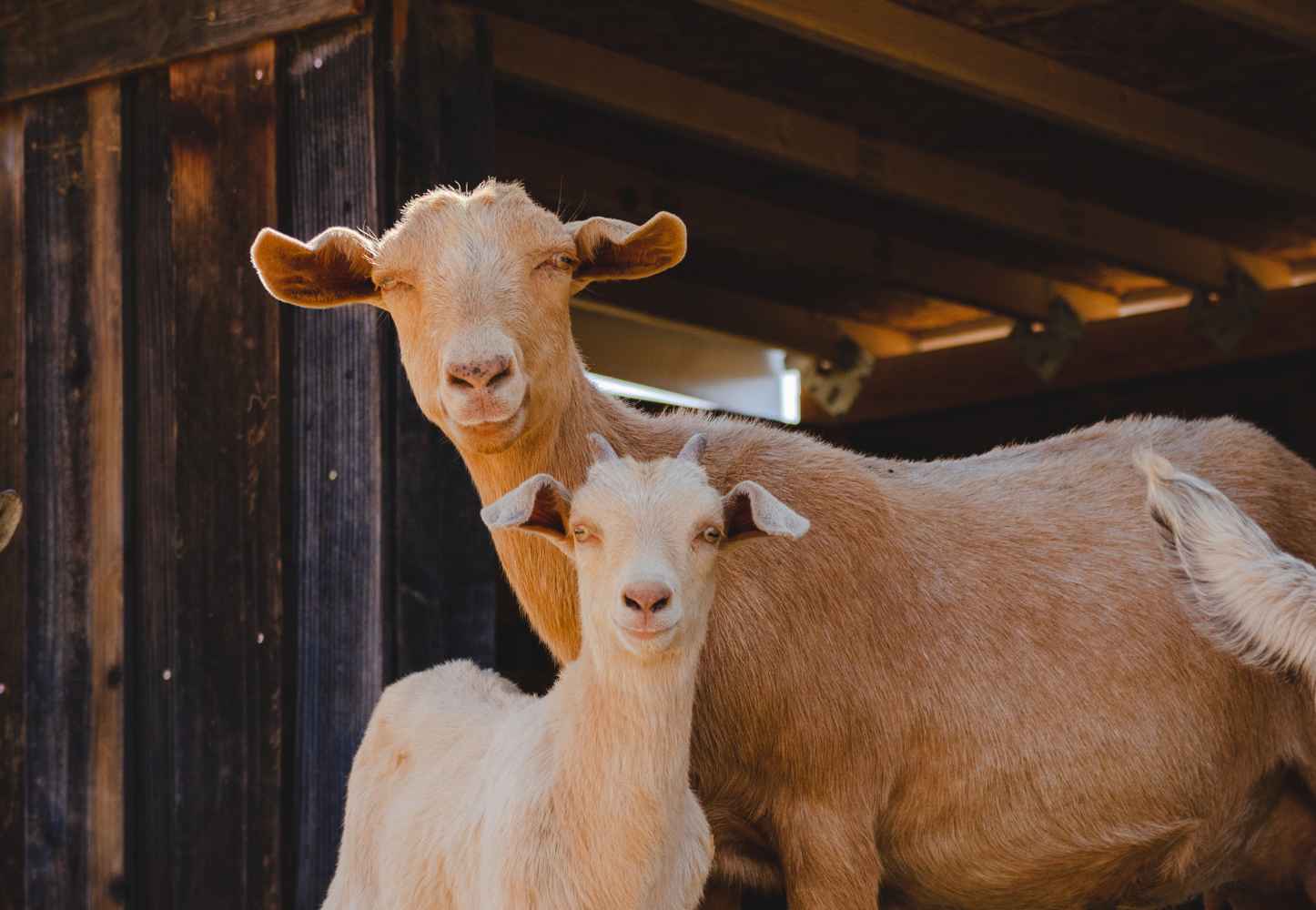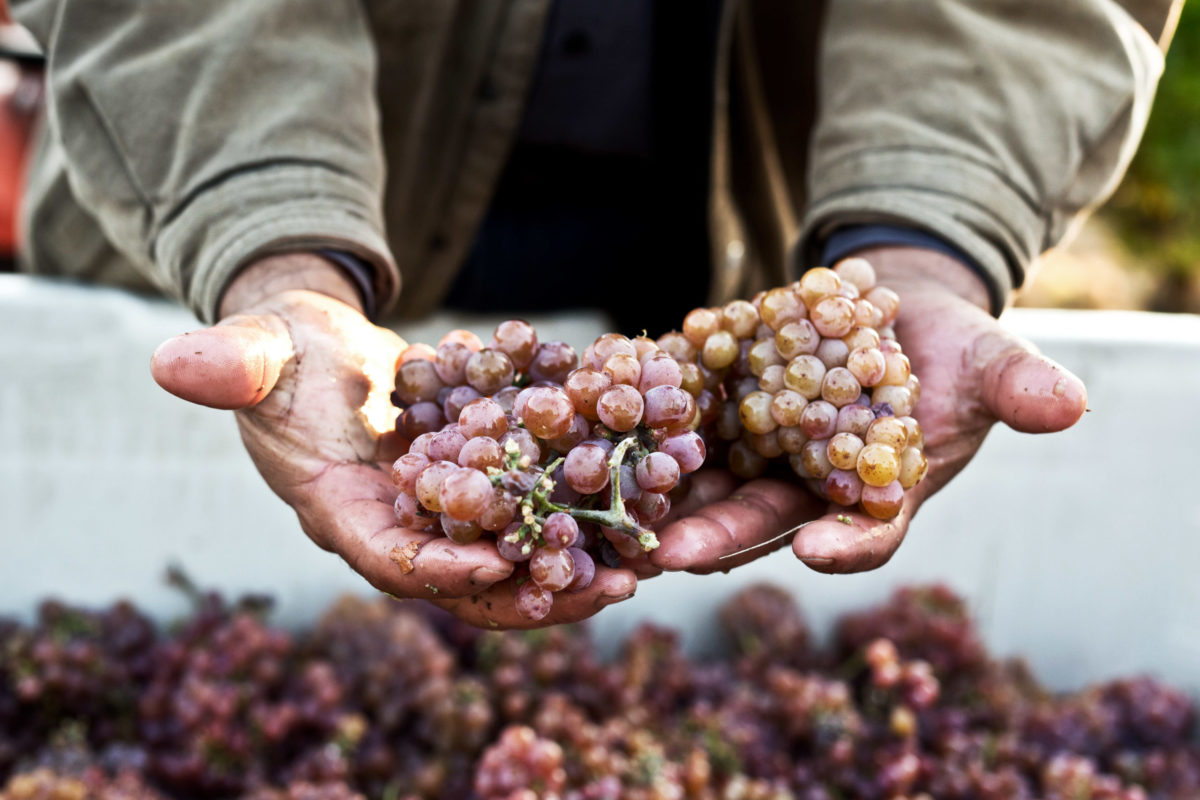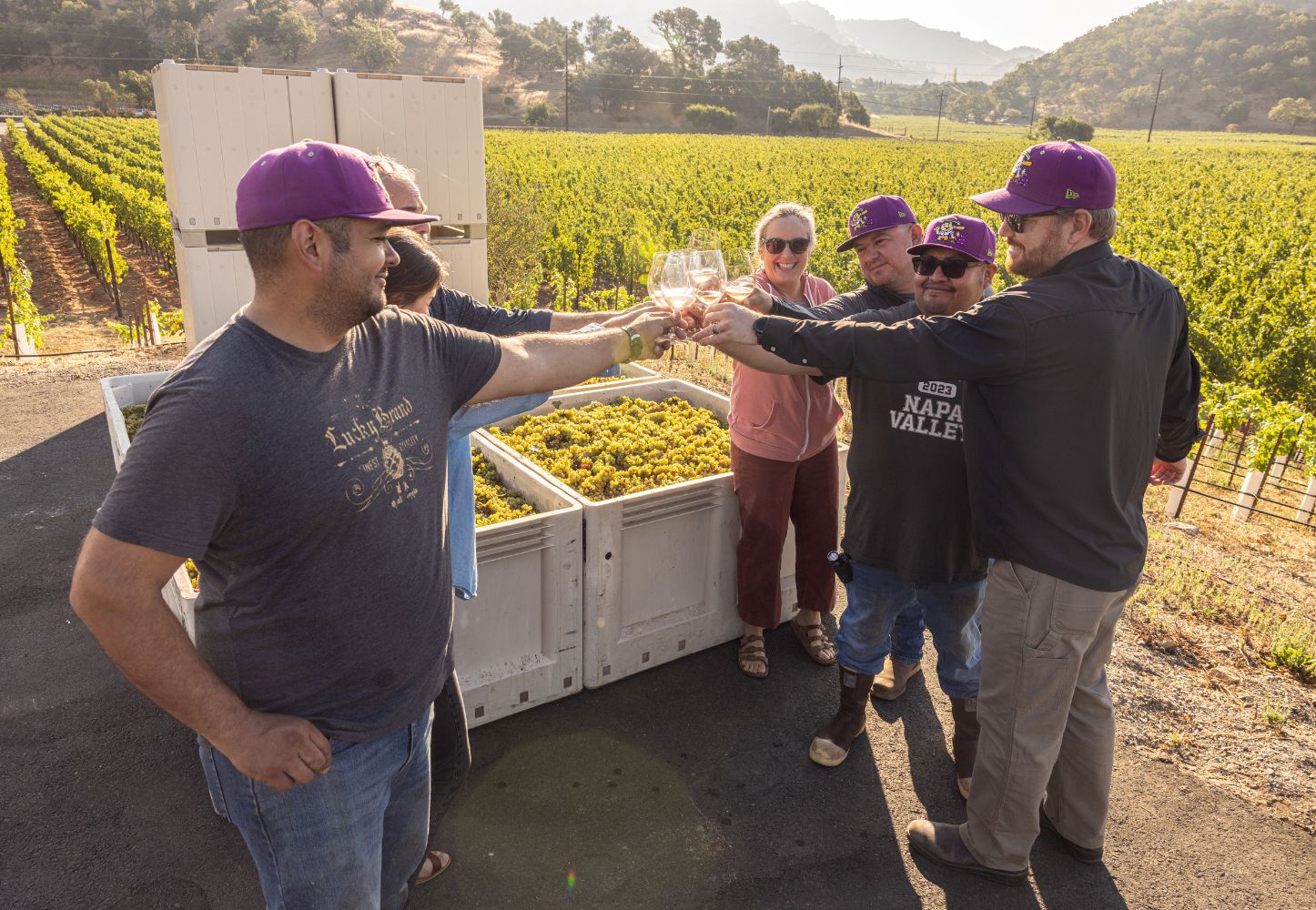At Baldacci Family Vineyards, sustainability and social responsibility are at the forefront of our winery practices and vineyard management. We believe that caring for our land, our people, and our community is a critical component in producing the best wine possible.

Our estate vineyards in both Stags Leap District and Calistoga are farmed in accordance with CCOF (California Certified Organic Farmers) standards. Our vineyard practices include manual pruning, suckering, fruit removal, and harvesting, with minimal tractor use to limit gas-powered machine use. Our regenerative practices include the use of grazing animals such as sheep for under-vine cultivation—helping to weed and maintain balanced soil health. Bird and owl boxes throughout the vineyard provide a safe haven for these creatures, which play a role in keeping rodents and pests at bay. Cover crops improve soil health by increasing organic matter, aiding soil nutrient balance, and preventing erosion.
Integrated Pest Management (IPM) allows the natural symbiosis of pests and animals to do the work of maintaining a healthy vineyard—such as planning bird-attractant plants and flowers for a robust bird population to help keep pests at bay.

Mindful of California’s drought, we prioritize water conservation at our winery. In 2021, we introduced a wastewater system directing all winery wastewater to our vineyard, reducing onsite waste and decreasing groundwater dependence. We source sustainable packaging materials, with bottles from Gallo Glass made of 50% recycled glass and boxes from Landsberg, aligning with our eco-friendly ethos.
Our Estate House champions local, artisan food from family-owned businesses, avoiding disposable items to minimize landfill impact and partnering with Upper Valley Disposal Services for recycling and composting, supporting community agriculture.

In addition to our efforts in climate preservation, we are committed to supporting our local community. This commitment includes regular contributions to local nonprofits, participation in charitable causes, and annual donations to Napa County organizations. Each year, we select a local charity to support. For instance, in 2022, we donated over $12,000 to Puertas Abiertas Community Resource Center, supporting local Latinx families, and in 2023, we contributed over $17,000 to Napa CASA, advocating for children’s safety and protection.
We strongly support our team members with continuous education and competitive compensation, ensuring they can reside in Napa County. Proudly, we uphold an equal opportunity employment policy, focusing solely on merit, competence, and performance, and we maintain a nondiscriminatory practice, ensuring the comfort and safety of everyone on our property.